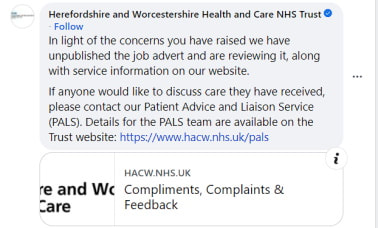The ME Association’s (MEA) website contains symptoms information from the NICE Guideline, including -
ME/CFS Symptoms and diagnosis
- ME/CFS and Long Covid Overview
- ME/CFS Symptoms & Diagnosis
- ME/CFS Further Information
- NICE Guideline ME/CFS
Also the MEA have given Key symptoms with explanations that should all be present for a diagnosis of ME/CFS including - Debilitating fatigue; Post-exertional malaise; Unrefreshing or disturbed sleep; and Cognitive difficulties. The MEA website also contains sections on: Other common symptoms; Referral to ME/CFS Specialist; and Severity of ME/CFS.
Action for M.E. (AfME) explain -
Range of symptoms
Everyone who experiences M.E. has a different pattern of illness, and symptoms and severity can fluctuate and change over time. M.E. is not "feeling tired."
The 2021 NICE guideline for M.E. for health professionals in England and Wales instead talks about "debilitating fatigue that is worsened by activity, is not caused by excessive cognitive, physical, emotional or social exertion, and is not significantly relieved by rest."
While it’s important to find out more about the range of symptoms experienced by different people with M.E. - it is also important to know that people with M.E. may only experience a few of them and at varying levels of severity. Always get new symptoms checked by your doctor, as they may be unrelated to M.E. Women often find that symptoms worsen at different times in their menstrual cycle.
AfME give detailed explanations on - Feeling generally unwell; Sleep disturbance; Pain - (If pain, especially muscle pain, is more of a problem than fatigue, fibromyalgia may be an issue); Cognitive difficulties, sometimes collectively called "brain fog"; Problems with the nervous system; Digestive problems; Intolerance and increased sensitivity:
ME Research UK (MERUK) also has a useful section on ‘What is ME?', and explain that ME/CFS is an illness affecting many different parts of the body, which can last for a long time in some people.
MERUK give detailed information on - The main symptoms; What is the cause?; Living with ME/CFS; How is ME/CFS diagnosed?; What treatments are available?; The role of ME Research UK; More information about ME/CFS.
MERUK state - For a more detailed explanation of ME/CFS, its symptoms and treatment, we recommend the website of the US Centers for Disease Control and Prevention.
BACME (British Association of Clinicians in ME/CFS)
In BACME’s response (pdf) to the 2021 NICE Guidance on ME/CFS, Bacme, stated that the NICE guideline provides information regarding diagnosis including the importance of recognising the key symptom of Post-Exertional Malaise.
This response also states that “The symptoms of ME/CFS are not caused by deconditioning. This guideline marks the move away from using GET programmes for treating ME/CFS. This is a move the majority of BACME members working in NHS specialist services have already made.
• Action for ME • M.E. Association • MERUK • N.I.C.E.

 RSS Feed
RSS Feed
